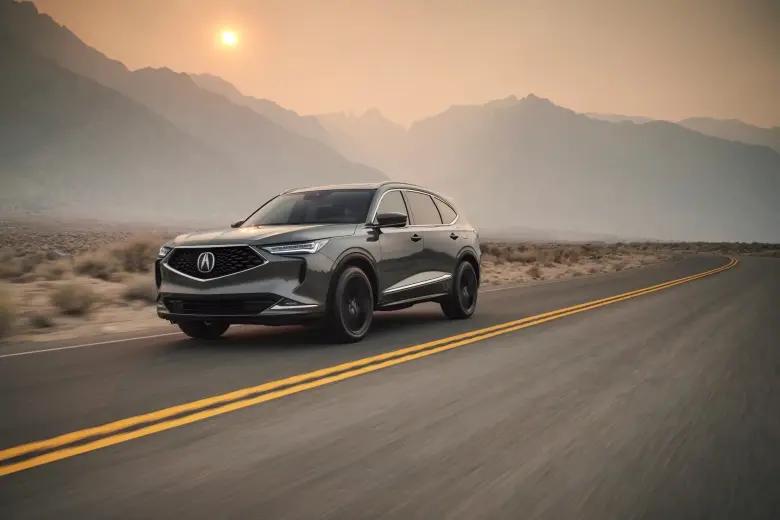
How Micro Leasing Works
A deck is old newspaper lingo for the short article summary that accompanies a headline.
What is a car lease?
At AutoNation Mobility, we're revolutionizing the way you experience car ownership. With our hassle-free subscription service, you can drive the car of your dreams without the burdens of traditional ownership. Our extensive fleet of meticulously maintained vehicles offers something for every lifestyle, whether you're looking for luxury, performance, or versatility. Backed by exceptional customer service and a seamless digital platform, we are committed to providing you with a convenient and flexible car subscription experience that exceeds your expectations.
H2 Header
H3 Subtitle if needed: Choose the car you want, when you want it
With a car subscription, you have the flexibility to choose the car you want, for as long as you want it. Whether you need a sleek sedan for a business trip, a spacious SUV for a family vacation, or a rugged truck for a weekend adventure, you can easily switch between vehicles to suit your needs. Plus, with no long-term commitment or hidden fees, you have the freedom to cancel or pause your subscription at any time.
What are the benefits of leasing a vehicle?
Lower monthly payment. Because you are only paying for the estimated depreciation while driving the car and not the entire purchase price, monthly leasing payments tend to be lower than financing payments. It simply means your money will go farther leasing a car than financing one. A lower monthly payment is the top reason people give for leasing. It isn’t the best reason, but it is the most common.
New vehicle every few months. Another perk of leasing is the freedom to drive a new car every two or three years with no strings attached. A side benefit of having a new car every few years is you probably will always have a vehicle protected by the factory’s new car warranty. There may even be a free maintenance warranty for a portion, if not all, of the lease. And, every couple of years, you can have a car with the most up-to-date technological advances and safety features.
You can walk away at the end. At lease end, you don’t need to worry about the hassle of selling the car or negotiating its value as a trade-in. You drop the keys on the lessor’s desk and walk away. That is if you want that.
Buy the car for less. Here’s some excellent news: If you still like the car at the end of the lease, you can buy it. Because the leasing company estimated what the car would be worth at the end of the lease (the residual value or residual), they may have guessed wrong. If they underestimated the car’s worth at the end of the lease, you could cash in by buying that car for less than the current market value. It’s wise to do this in a tight market when supply struggles to meet demand.
What Credit Score do you need to lease a vehicle?
As with taking out an auto loan, leasing may be easier and less expensive if you have good credit. The cars you're allowed to lease may be limited if you have bad credit. Generally, car leasing companies prefer customers who have a FICO® Score☉ of at least 700. Higher scores might also help you qualify for a lower monthly payment. This is because your credit can impact your money factor, the financing charge portion of your monthly payment.
Some dealers offer leases on used vehicles, which may be easier to qualify for if you have bad credit. However, the lease may have high fees and lack many of the advantages that come with leasing a new car. For example, you may be responsible for all the repairs and maintenance during the lease. You might be better off trying to improve your credit and finances and then looking for a lease.
"I love the flexible and affordable alternative to traditional car ownership that lets me drive my dream car without the long-term commitment."
–Sara, San Francisco
What to consider before leasing a car
The language in a car lease agreement may be new to you and can sometimes be confusing. Here are some of the common terms and their definitions:
Acquisition fee: Some dealerships or leasing companies charge an upfront fee for arranging the lease. You may be able to negotiate this fee or find a lease without an acquisition fee.
Buyout price: You may be able to end the lease at any time by buying the car outright. The buyout price may decrease over time as the car depreciates.
Capitalized cost: Often shortened to cap cost, this is the initial price of the car. You can negotiate the cap cost just as you would when buying a car.
Cap cost reductions: You may be able to reduce your cap cost in various ways, such as negotiating the price, trading in a car or making a down payment. Because you pay for the depreciation between the cap cost and the residual value (the value of the car at the end of the lease), cap cost reductions can lead to lower monthly payments.
Disposition fee: You may have to pay a disposition fee at the end of your lease to help cover the dealership's costs for getting the car ready to sell. Even if you can't negotiate the fee upfront, you may be able to negotiate it down when you return the car if you offer to buy the car, buy a car or start a new lease with the dealership.
Gap insurance: Insurance that covers the difference between a car's residual value and what your auto insurance company pays out if the car is totaled. Some lessors require you purchase this and include the insurance premiums in your monthly payment.
Lease term: The length of the lease, which is often two to four years.
Mileage allowance: How many miles you're allowed to drive each year before the per-mile penalty begins. You can sometimes negotiate a higher mileage allowance, but may have to pay more each month as a result.
Money factor: Also called a lease factor, lease rate or rent charge, the money factor determines part of your monthly payment. The money factor is often shown as a small decimal fraction, but you can convert it into an interest rate by multiplying the number by 2,400. For example, a cap rate of .0025 equals an interest rate of 6%.
Purchase option agreement: Your lease may specify how much you can purchase the car for once your lease ends.
Residual value: The value of the car at the end of the lease, which may be determined by a third party.
Security deposit: You may have to pay a security deposit, which the lessor holds on to and can use to cover damage or extra-mileage charges when you return the car. If you don't owe any extra fees, you'll receive the full security deposit back.


Helpful Hints
Micro Lease Lingo
Renew: Subscribe to the same car again (if it’s not broke, don’t fix it!)
Swap: If you want to try something else, that’s fine by us. Just pick out a new car. We’ll waive the disposition fee to make things easy.
Buy: So you fell in love with the car you subscribed to… we’ll give you the option to buy your car once your term is up.

